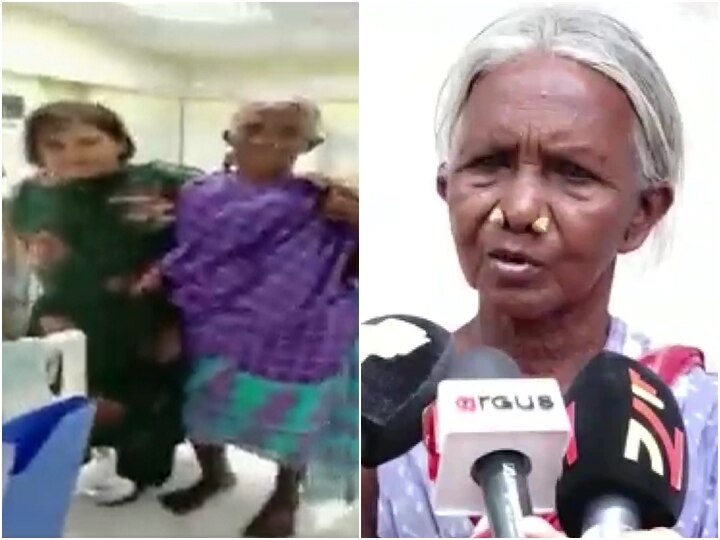New Delhi: Padma Sri Awardee Kamala Pujari said that a social worker "forced" her to dance in a hospital where she was being treated.
Kamala Pujari was admitted to SCB Medical College and Hospital in Cuttack with kidney problems when social worker Mamata Behera allegedly forced Pujari to dance along with her. Despite repeatedly saying no, Behera did not listen. In a viral video, the elderly woman was seen dancing with Behera in the hospital.
"I was unwell, despite that a social worker (Mamata Behera) forced me to dance with her. She asked me to do the Dhemsa dance before the camera", news agency ANI quoted Pujari as saying.
The Sub Collector of Jeypore in Koraput district, BB Pradhan on Friday spoke with the media and termed the incident as unfortunate while informing them that the administration will look into the matter.
"It's unfortunate that Kamala Pujari was forced to dance while she was in a hospital for her treatment. We will enquire about the matter further", BB Pradhan was quoted by ANI.
Pujari belongs to the Paraja community, a major Scheduled Tribe of Odisha, which comprises around 4 per cent of the state’s tribal population. Members of the tribal community demanded action against the social worker on Thursday. Harish Muduli, president of the tribal community’s association, Paraja Samaja, in Koraput said that its members will hit the street if the government fails to take action against the social worker.
Meanwhile, hospital authorities said that Behera would visit Pujari's special cabin and make her dance.
“The woman who allegedly made Pujari dance used to visit her at the special cabin,” said Dr Abinash Rout, the registrar (administration) of the hospital told the news agency PTI.
Pujari’s attendant Rajeeb Hial said she does not know Behera, who had also clicked several selfies with the Padma Sri awardee.
Behera, however, claimed she had no ill intent behind the act, and just wanted to “shun Pujari’s laziness”.
Kamala Pujari was awarded the Padma Sri in 2019 for promoting organic farming and preserving over 100 varieties of indigenous seeds for different crops including paddy.
(With ANI and PTI inputs)


